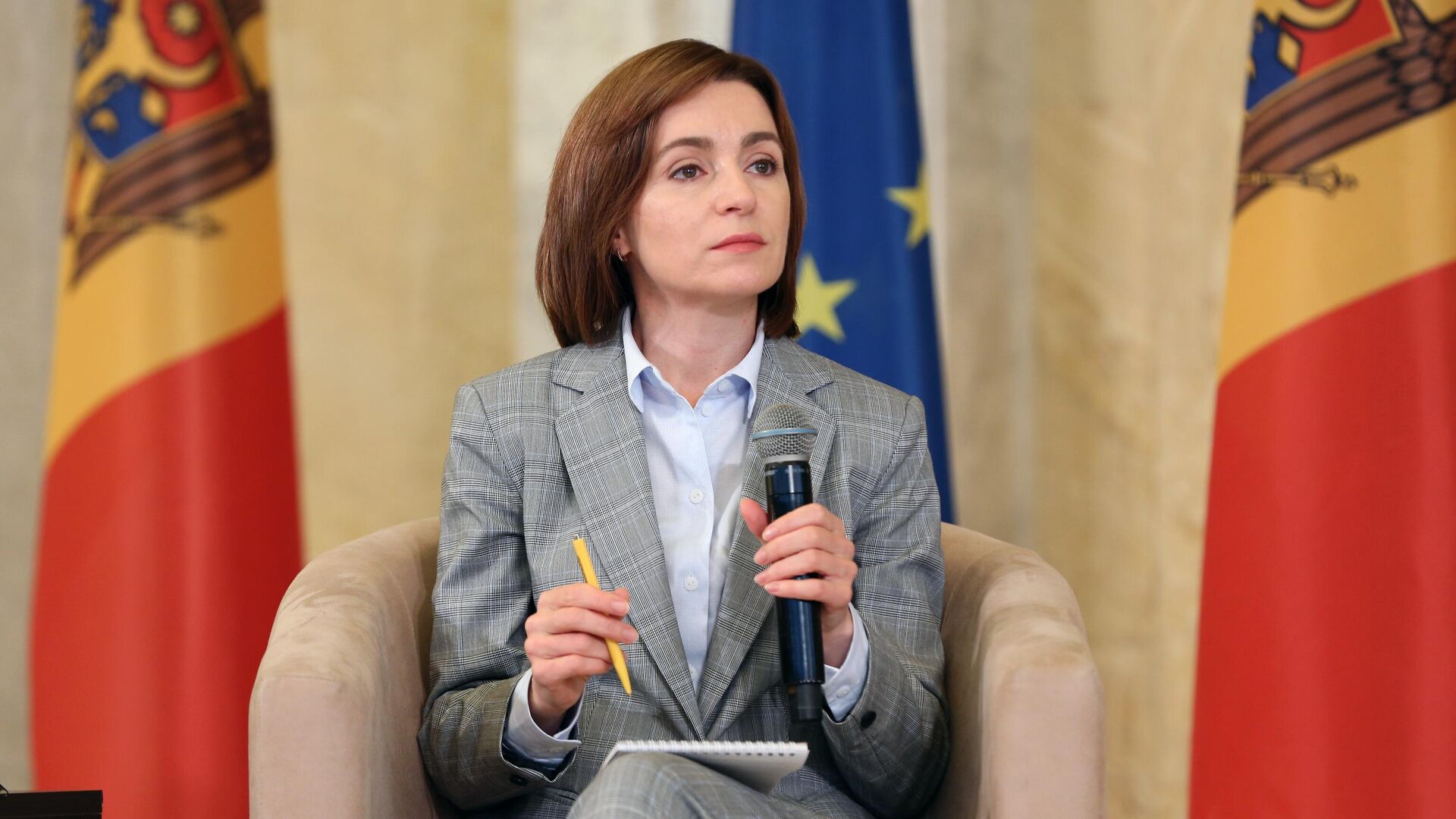
Moldovan President Maia Sandu has decried “unprecedented assault on our country’s freedom and democracy” by “foreign forces” on Sunday night after preliminary results of referendum showed that Moldovans are split over joining EU.
Moldovans went to polling stations on Sunday for twin polls – to elect the country’s new president and to vote in a referendum on enshrining EU aspiration to the country’s constitution.
With 97.66% of the vote counted by 3am GMT on Monday, 50% of Moldovans voted “yes”, but the results could yet change as the votes of the country’s pro-EU diaspora in abroad are still being counted, according to Moldova’s electoral commission. The referendum result was much tighter than opinion polls had predicted. Survey conducted ahead of the referendum showed around 55% of Moldovans would support the move, while 34% were against it.
In the presidential election held on the same day, Moldova’s incumbent president Maia Sandu stood at around at around 39% of the vote, failing to receive the required 51 % of votes to secure victory. This paved a way for the scheduling of a run-off election two weeks later on November 3. Sandu’s pro-Russian close competitor Alexandr Stoianoglo came second, securing around 28% of the vote. Stoianoglo is former prosecutor general backed by pro-Russian Party of Socialists.
The turnout in the election stood at 51%. Representing pro-EU Party of Action and Solidarity (PAS), 52-year-old Sandu competed against ten presidential candidates.
The former Soviet nation of 2.5 million people has begun EU membership talks with the EU since June and has sought to sever ties with Russia since the full-fledged invasion of Ukraine in February 2022. Russia has worked hard to derail Moldova’s EU integration by using various methods, including cash transfers to Moldova’s anti-EU activists by Moscow-based fugitive tycoon Ilah Shor. Shor described the Sunday’s elections as “our last chance” to keep Moldova under Russia’s orbit.